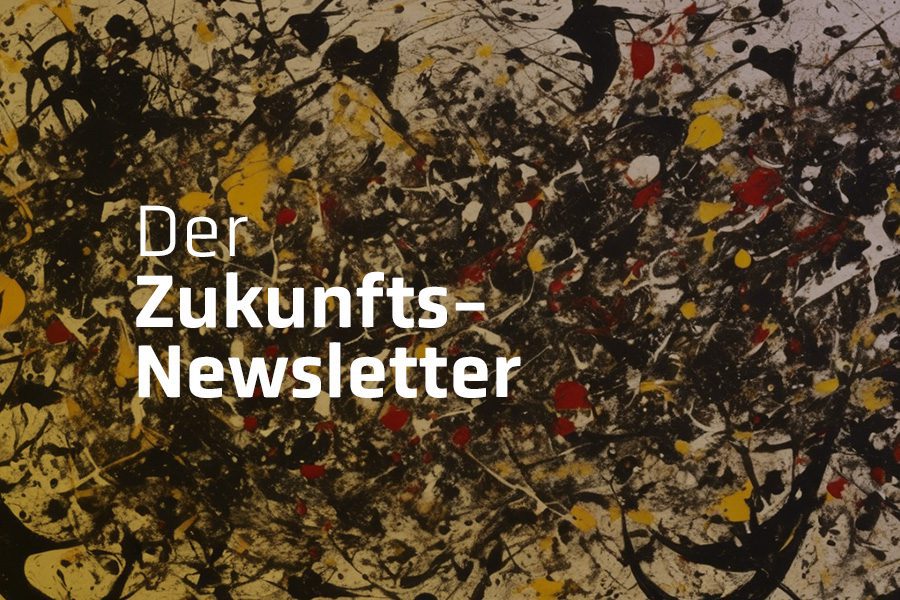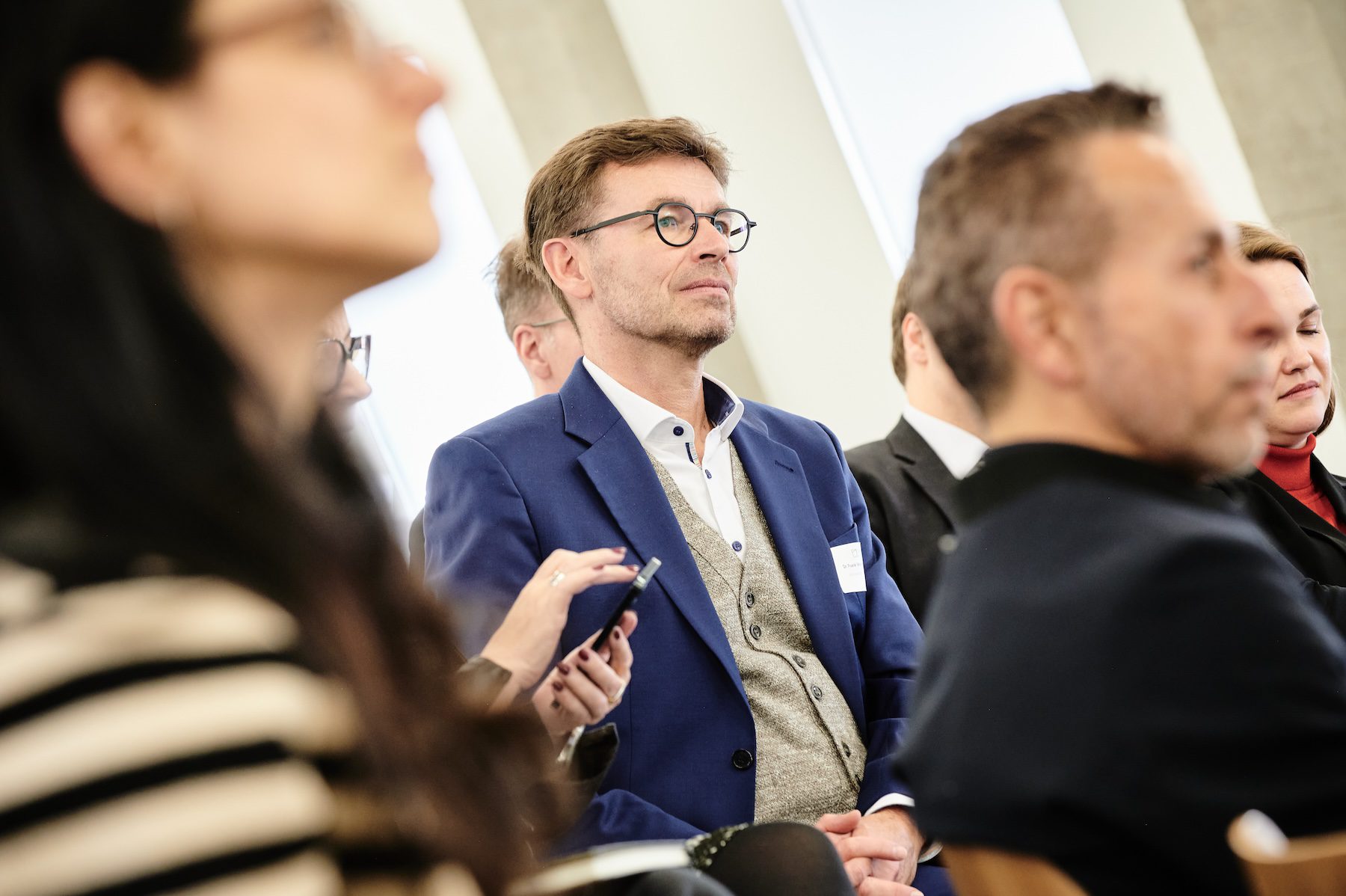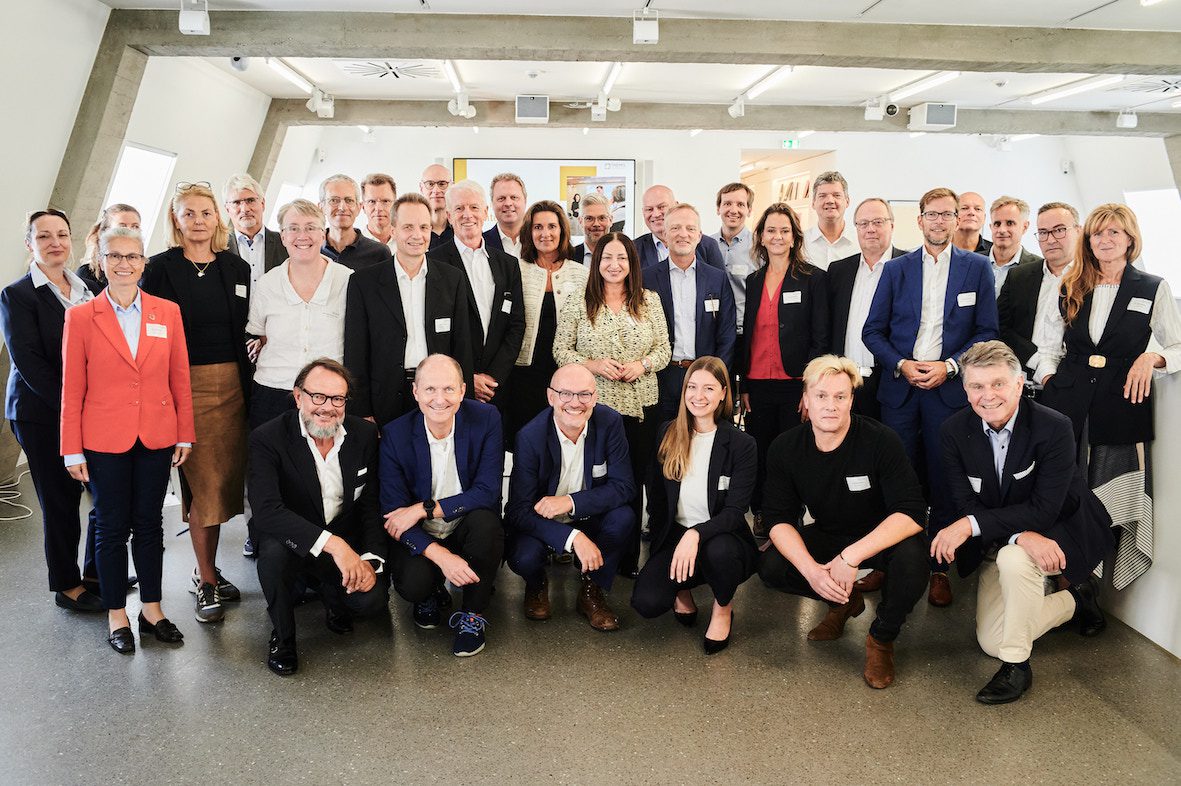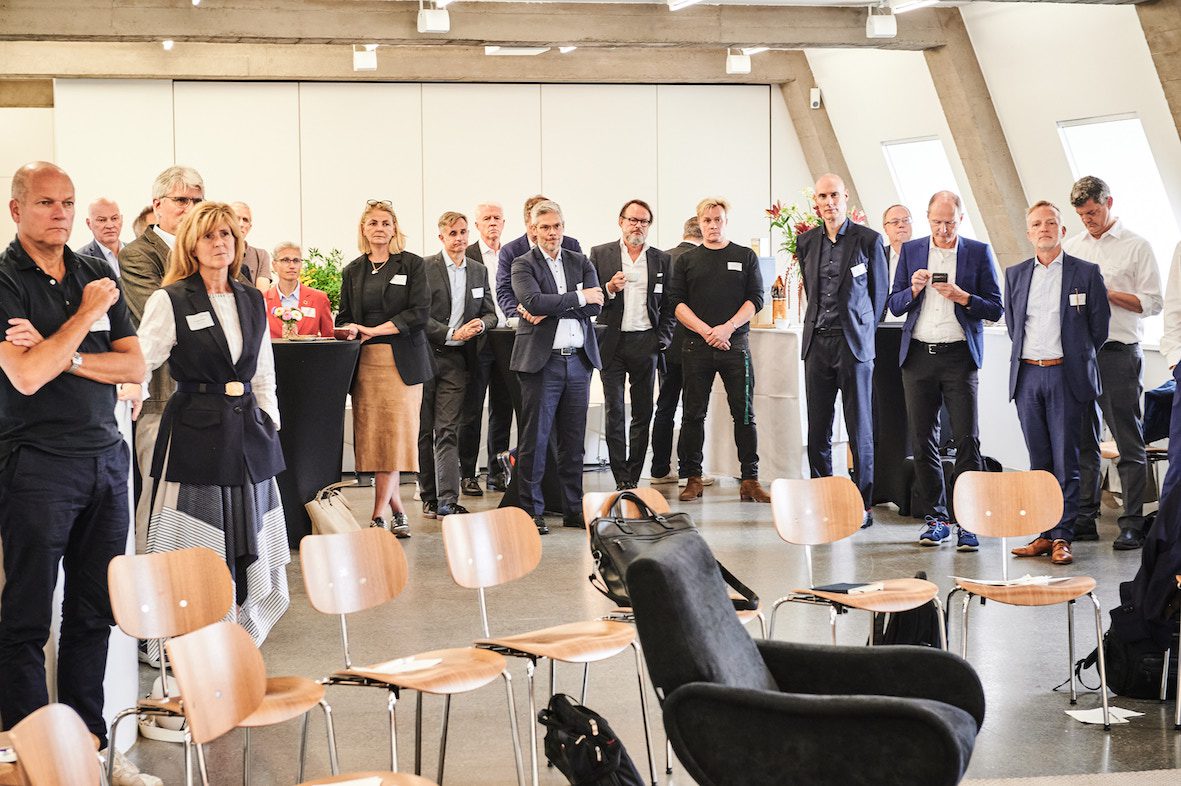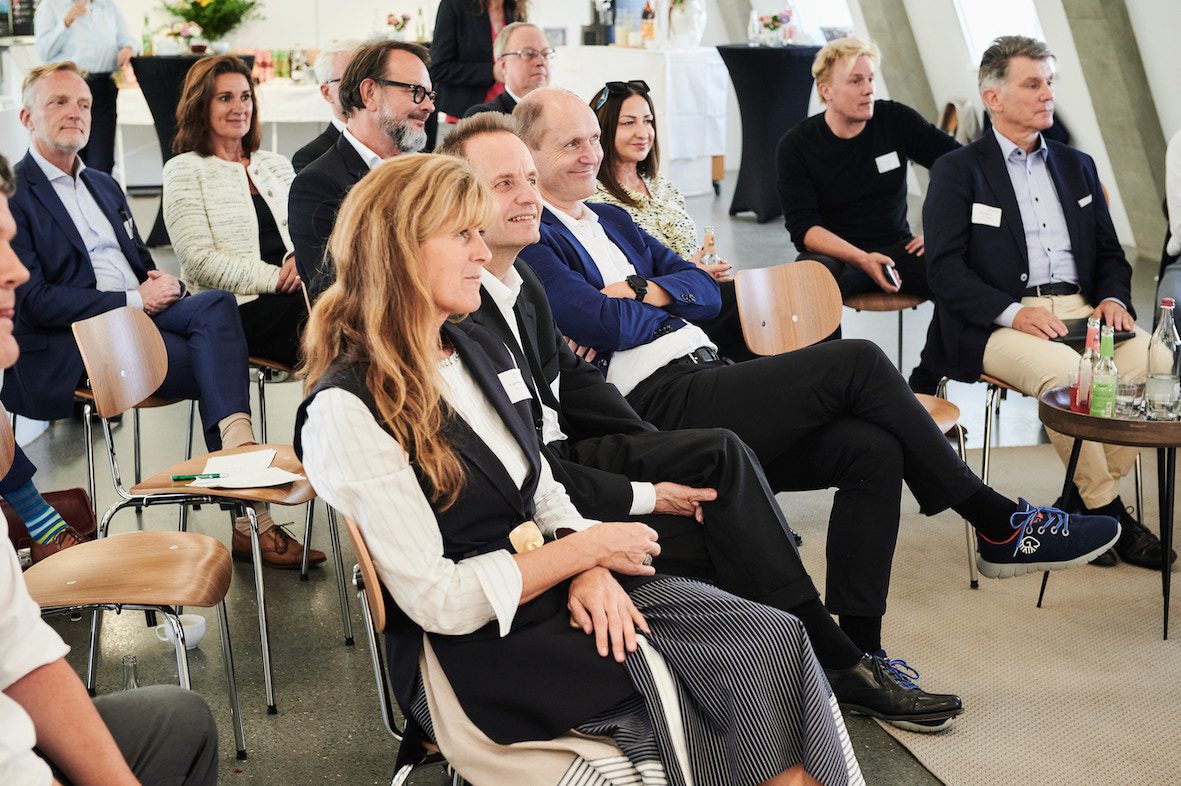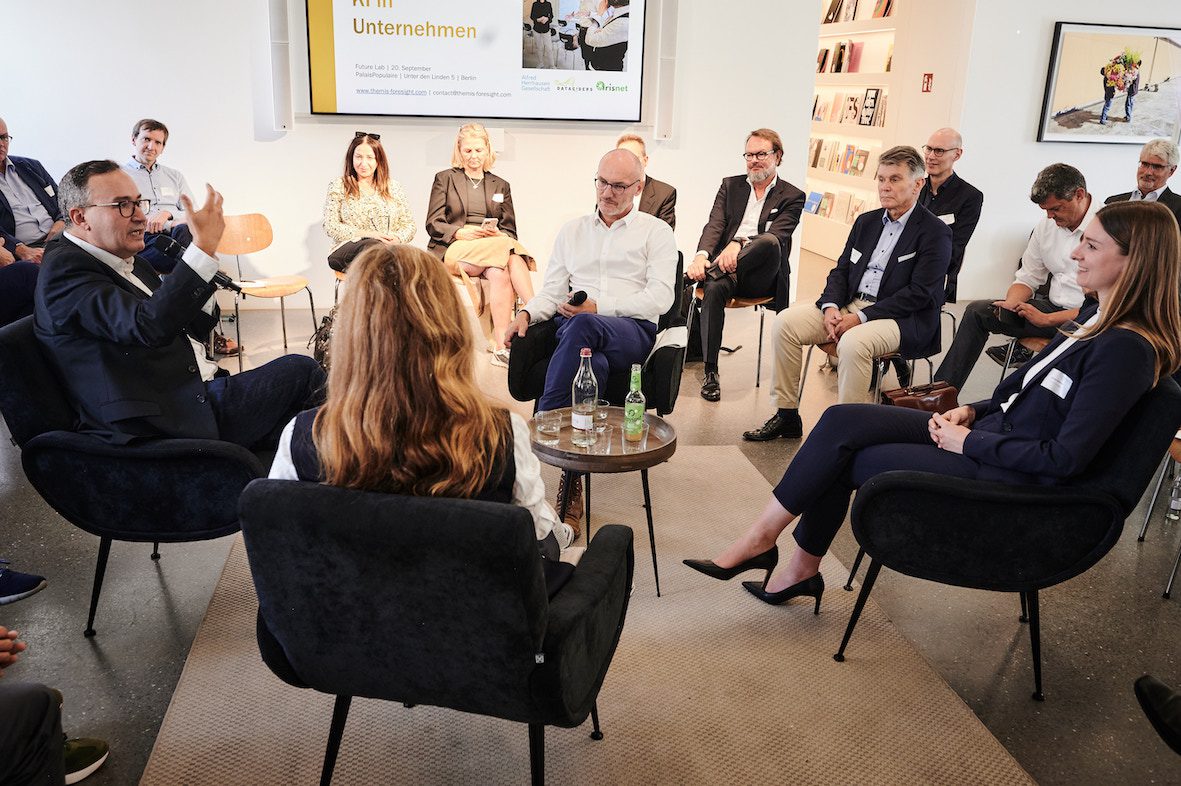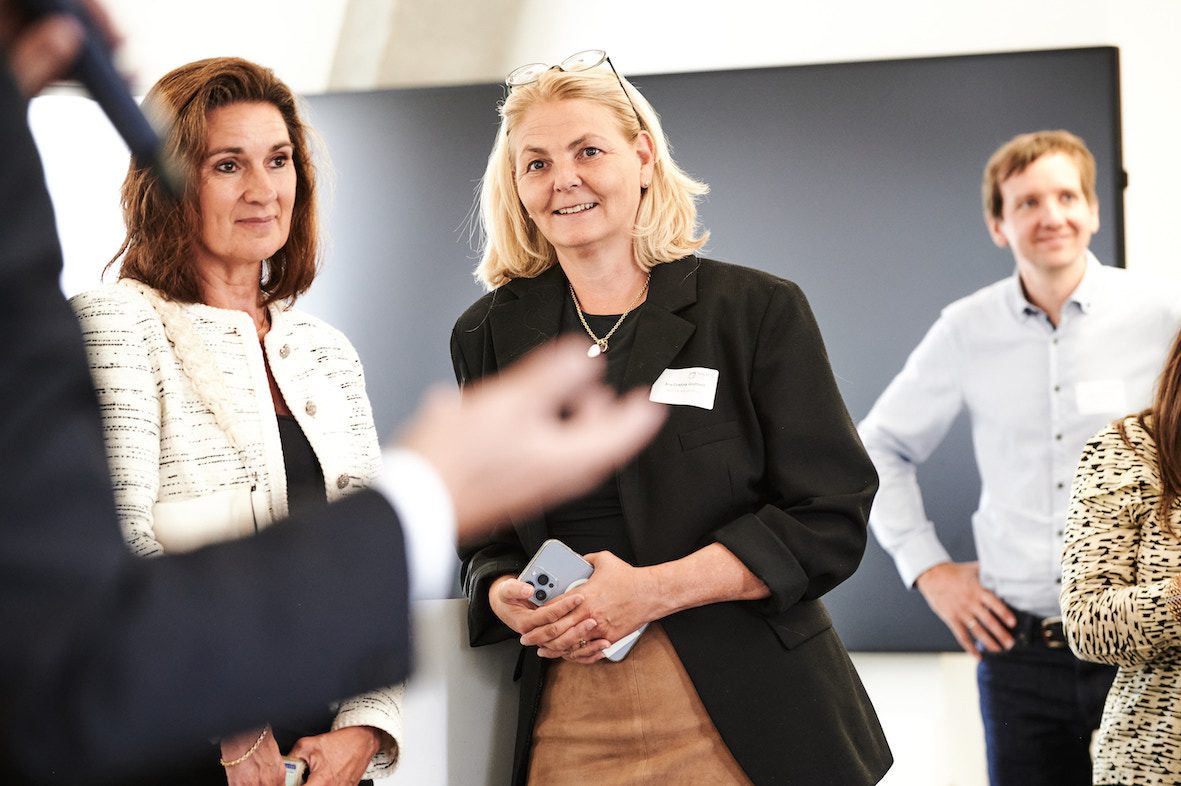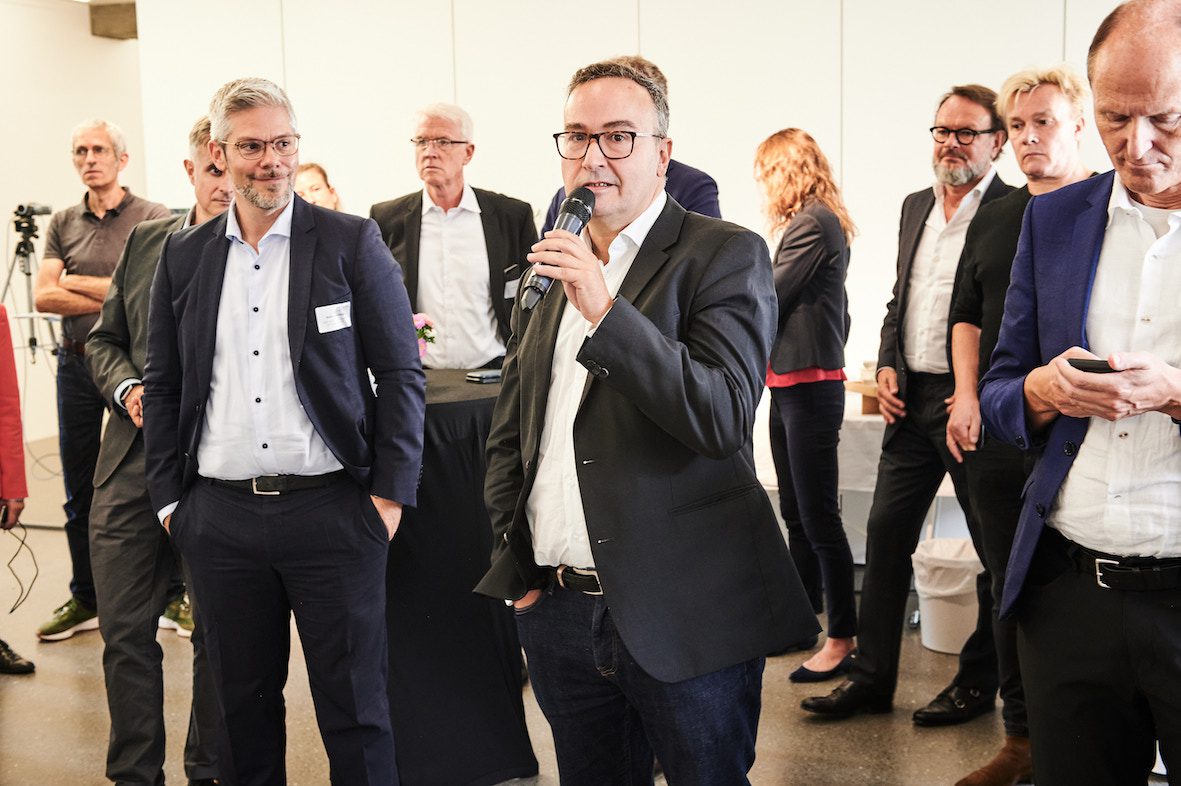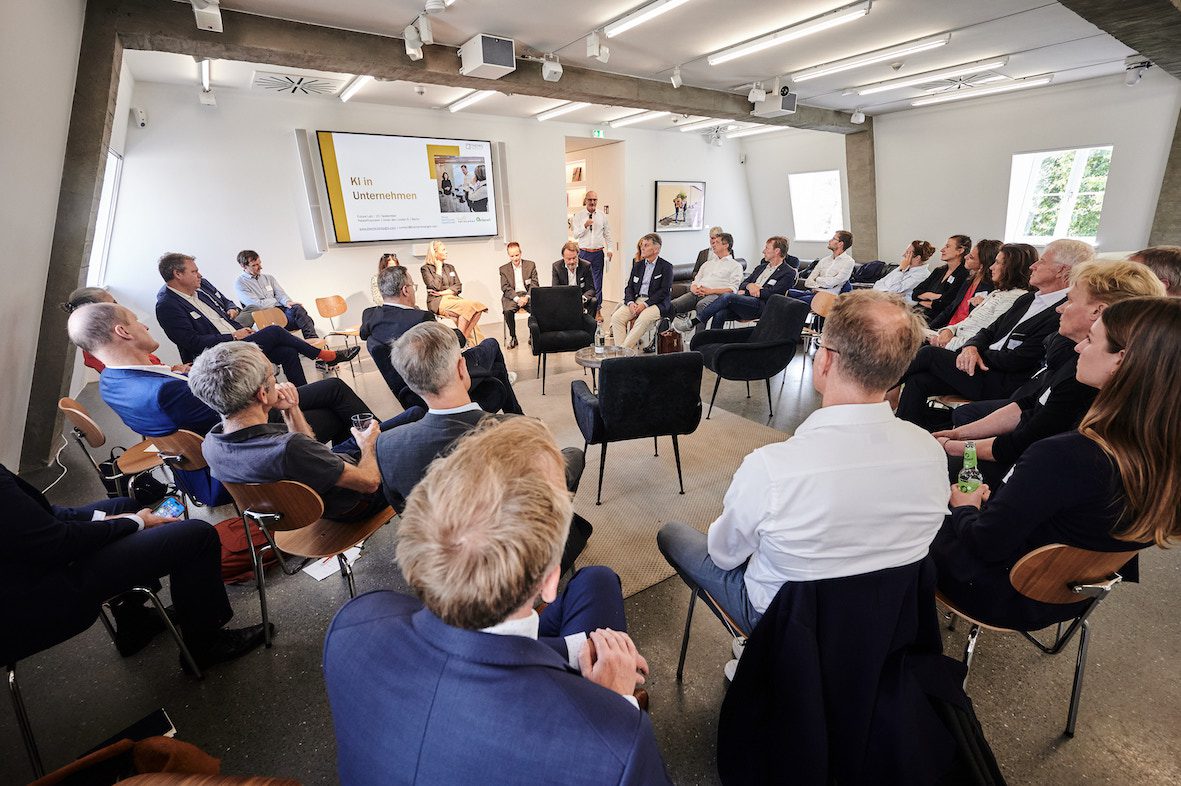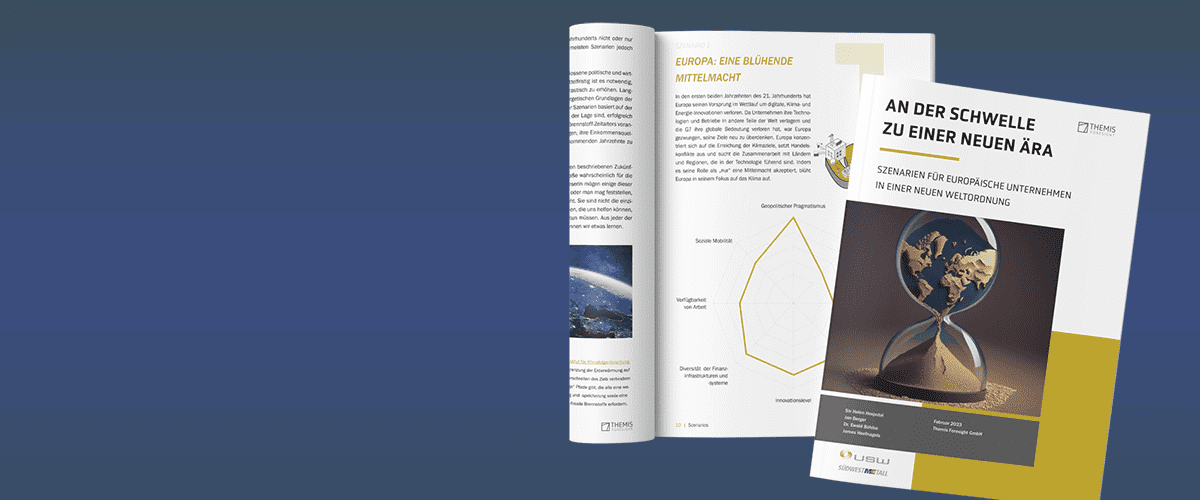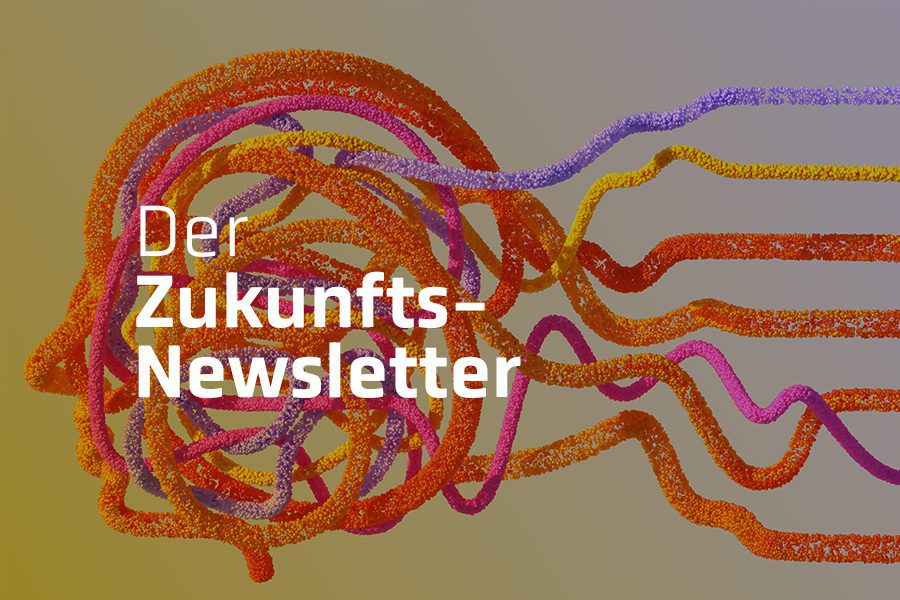Paradigms shaping tomorrow’s democracies
The Nordic Chapter of the World Futures Studies Federation hosted an important conference on “Futures of Democracies” in Reykjavik, Iceland, from February 21 to 23. The conference was opened by Iceland’s Prime Minister, Katrín Jakobsdóttir. Themis Foresight wants to thank Karl Friðriksson for being a wonderful, caring and committed host, and the entire organizing committee for this inspiring three-day exchange, namely: Erik Ferdinand Øverland , President for the World Futures Studies Federation, Magnus Jörge, WFSF, Karl Friðriksson and Saevar Kristinsson of The Icelandic Centre for Future Studies, Toni Ahlqvist, Jari Kaivo-oja, and Mikkel Stein Knudsen of the Finland Futures Research Centre (FFRC), Martin Kruse of the Copenhagen Institute for Futures Studies, Hank Kune of Educore bv Siv Helen Hesjedal of These Ways and Advisory Board Member Themis Foresight, William Fagerheim William Fagerheim of Mind the Gap, and Anna Sigurborg Olafsdottir, Futurist at the Alþingi, The Icelandic Parliament.
I had the opportunity and pleasure to address the conference on the topic of “Paradigms shaping tomorrow’s democracies”. Below is a slightly expanded version of my talk.
Even though this is a conference on futures of democracies, my talk is primarily philosophical, somewhat historical and includes elements of futures. You may ask why a futures conference should concern itself with history. In my years in the field of futures I have grown very fond of Prof. Dr. Rolf Kreibich’s definition of futures research as the “scientific engagement with possible, probable, and desirable futures and design options and their preconditions in the past and the present.” And with a self-critical note on the field, I do feel that in our quest to create desirable futures, we often tend to forget to research or even concern ourselves with the preconditions of such futures and design options in the past and the present. Thus, I hope that the deliberations of the coming days do take those into account, as well.
Hallmarks of Democracy:

Culturally, the concept of democracy emanated in “the global West”. As everyone here knows, the term comes from the Greek, meaning as much as “people’s rule”. Another term associated with the concept of democracy is that of the Republic, a Latin term signifying “public matters”.
Roughly speaking current democratic or republican ideals are associated with the governance paradigm of separation of powers with independent judicial, legislative, and executive branches of the state. Yet, the overwhelming majority of the world’s countries claim to be either democratic or republican, very often both, as exemplified by the Democratic People’s Republic of Korea (yes, that’s the Northern state) and have codified written legal norms in their constitutions that favor a separation of powers. So, in one way, both terms are problematic starting points for discussing futures of democracies.
Perhaps, we’re better served to research value systems underpinning our understanding of democracy. The triad of “liberty, equality, and fraternity” is associated with the Great French Revolution of 1789. Many democrats still hold these values in very high regard, although we might be better served to replace the term “fraternity” with “solidarity”. I, for one, don’t like the idea of being brother to too many people, and rarely is the family a democratic construct. But more importantly and by virtue of the word’s meaning, the concept of fraternity excludes more than half of the population, namely women.
When the French National Constituent Assembly adopted the “Declaration of the Rights of Man and of the Citizen” in 1789, it defined the value of liberty in the following terms:
“Liberty consists of doing anything which does not harm others: thus, the exercise of the natural rights of each man has only those borders which assure other members of the society the fruition of these same rights.”
The value of “equality” was applied in the same document by stating that:
“The law… must be the same for all, either that it protects, or that it punishes. All the citizens, being equal in its eyes, are equally admissible to all public dignities, places, and employments, according to their capacity and without distinction other than that of their virtues and of their talents.”
Adoption of the value of “fraternity” was a much messier affair. It did not feature prominently in the 1789 revolution and following years. It took the French February Revolution of 1848 to include fraternity into the official canon, and that only by compromise. The revolting masses preferred the red flag as the new flag of the Republic over the French tricolor. However, the brief head of government, and then French Foreign Minister Alphonse Lamartine vehemently opposed the introduction of the red flag. But by way of compromise, the old flag remained, and “fraternity” was included in the Republican motto. Still, this motto only lasted until 1852, when Napoleon III ordered the triad “liberty, equality, fraternity” erased from all official documents and buildings. The motto only re-appeared during the Paris Commune of 1871 and became the motto of the Third Republic. It remained so during the Fourth and current Fifth Republics.
This little and abbreviated excursion serves to illustrate that…
…Value systems and terminology undergo change.

When and how did the term “democracy” enter the picture? It appears that in Europe this term gained currency in the German 1848 revolution and continued to be used by Germany’s socialists who called themselves Social Democrats and ruled for most of the period between 1918 and 1933. But the term gained much more traction in the U.S., and very differently from the use in continental Europe’s socialist and liberal circles. In the U.S., the term’s emergence is intricately linked to the Democratic Party of the U.S., which entered the political scene in 1828 or 41 years after the American Constitution guaranteed every State of the Union “a Republican form of Government”.
Originally founded to promote Andrew Jackson for president, the Democratic Party supported expansive presidential power, the interests of slave states, agrarianism, and geographical expansionism, while opposing a national bank and high tariffs. If you were a Democrat in the U.S in 1850, you wanted to hold slaves, conquer land, and have an agrarian economy. Collective norms were at best frowned upon. In particular, the central government was viewed as the enemy of individual liberty. The average American Democrat’s interpretation of liberty was one of individual freedom as opposed to the French Republican interpretation that allowed for individual liberty, while determining borders in order to “assure other members of the society the fruition of these same rights.”
The term “democracy” itself underwent an evolution in the U.S., reflecting the big unionization struggles of the 1930’s, the crushing of fascism in Europe by military means, the American Civil Rights movement of the 1950’s and 1960’s that set out to eliminate the vestiges of chattel slavery, or the millions-strong movement against the U.S. war in Vietnam in the 1960’s and 1970’s.
Western liberal thought was also influenced by the anti-colonial struggles in Asia and Africa. However, the embrace of anti-colonial struggles by Western democratic elites was at best uneven. Many of these struggles were aided by the Soviet Union and its allies – the archenemy of the U.S. and its European allies during the Cold War. On a propagandistic level, the Cold War was waged under the banner of “anti-imperialism” by the Soviet side and under the banner of democracy by the American-led “global West”.
The Helsinki Accords, signed in 1975 were a major achievement for the West during the Cold War, codifying the notion of human rights, freedom of thought, conscience, religion or belief as tenets of the democratic value system. Purported agreement with this declaration by the Soviet Union and its allies gave the West negotiation power and a propagandistic lever. And with peaceful reunification of Germany and the demise of the Soviet Union, anti-Communism, much criticized by left liberals in the West between the 1950’s and 1980’s, became vindicated, too.
In many ways, the current mix of codified “democratic values” dates back to the end of the Cold War when the American political scientist Francis Fukuyama proclaimed “the end of history”. But can the 50-year-old Helsinki declaration or the 30-year-old notion of history’s supposed end carry the concept of democracy through the 21st century? It would be absurd to entertain this idea.
Why Do We Discuss Futures of Democracies?

This conference is framed by the question: “How can we inspire the rest of the world to renew democracy for the 21st century?”
This question contains a very bold statement! And there’s a simple answer and many complicated ones. The simple answer is: By demonstrating the attractiveness of democracy! The last time this happened on a large scale was in the years 1989-1991, when the global West emerged victorious from the Cold War. The complicated answers will make up the rest of my talk.
Today, there seems to be a common understanding, if not mantra, that “democracy is under threat”. The perceived threats then usually amount to a list including climate, technology (more specifically Artificial Intelligence), migration, and autocracy. More on these phenomena later.
But perhaps this picture is already somewhat skewed. Could the feeling that “democracy is under threat” also be explained by the fact that the “global South” is growing faster than the “global West”? A look at some indicators might be useful:
According to the OECD, in 1995 the U.S. GDP (PPP) was at 11.1 trillion USD, while that of the Euro zone countries was at 10.3. By comparison, China’s and India’s GDP (PPP) were at 2.95 and 1.97 trillion respectively. In 2022, China’s GDP (PPP) of 27 trillion USD had surpassed that of the U.S. standing at 21.3 and of the Euro zone countries, standing at 15.2. India’s GDP (PPP) was estimated at 9.9 trillion USD. OECD projections for the year 2045 tax these economies at 30 trillion (U.S.), 51.2 trillion (China), 29.2 trillion (India), and 19.5 trillion (Euro zone).
Population indicators paint a similar picture. Between 2025 and 2050, Europe’s population is estimated to shrink by 5% from 741 to 704 million people. The North American population is expected to grow by 10% from 382 to 421 million people. The Asian population is expected to grow by 10%, as well, from 4.8 to 5.3 billion people. And Africa’s population is expected to grow by a whopping 63% from 1.5 to 2.5 billion people. By comparison, 100 years ago, Europe’s population was larger than Africa, North and South America combined.
With this shift in global demographics and global wealth, it is small wonder that the countries of the “global South” set out to re-negotiate the rules of the current global order, which was established after World War II, i.e. almost 80 years ago. Shouldn’t a true democrat who takes the value of egality seriously then say that global power should be redistributed, as well? And, considering the value of liberty, he or she may wonder “what if some of this power gets redistributed to autocratic regimes”? And how does “fraternity” or “solidarity” fit into this equation? Are these values equally strong or should liberty beat equality and solidarity? These are the questions that need to be negotiated in the context of discussing futures of democracies on a global scale.
Phenomenology is not helpful. We must dig deeper.

The discussion that democracy is under threat by climate, AI, migration and autocracy is, for my taste, too superficial. We need to dig deeper into the mechanics of these phenomena.
Climate
Climate change affects the planet and all living beings on it equally, regardless of the political divisions reflected by the states created by humans. In other words, it is not only a “threat to democracy”, it also threatens the livelihood of plants, the shapes of coastlines, and the composition of the atmosphere. Or, if we narrowed it down to human civilization, climate change affects all societies regardless of whether they’re “autocratic” or “democratic”.
While climate has changed constantly over the billions of years of Earth’s existence, and also in the few hundred thousand years of humanity’s existence on Earth, humanity has clearly left its mark on climate in the last 200 years. Peter Frankopan argued in his book The Earth Transformed that the 20th century “has been a period during which the consequences of how we live have been poorly understood or little thought about with the result that environmental and climatic changes of the present and future are being and will be shaped by what has already happened in the past rather than simply by decisions made today.” His book contains a fascinating tour de force through humanity’s responses to changing climate, and, if anything, demonstrates powerfully that those civilizations thrived that best adapted to changes in climate .
Adaptation requires two elements: ingenuity and execution. Ingenuity flourishes in a climate of cross-pollination, open debate, and freedom to experiment. Execution requires leadership.
How do autocratic and democratic principles fare in this comparison. Open debate and freedom to experiment should flourish in an environment of democracy. I say “should”, because oftentimes they don’t. Take, for instance, the debate on genetically modified organisms (GMO). Finland’s Green Party argues that food security and sustainable agriculture require novel genetic techniques. The German Greens and Italy’s far-right government, among others, vehemently oppose the adoption of improved GMO regulation in the EU, thus contributing to maintaining the outdated and damaging status quo of food production in Europe.
Execution, particularly of long-term goals in a democratic environment is more complicated when leadership can be challenged at any given day over any given question. Here, autocratic regimes appear to have an advantage. But this argument, too, doesn’t pass critical examination. John F. Kennedy’s 1961 moonshot agenda or Helmut Kohl’s and Francois Mitterrand’s initiative to introduce the Euro demonstrate that long-term goals and planning are possible and not even particularly difficult in democracies.
But if we were to accept for a second the notion that innovation thrives in a democratic environment and execution in a more autocratic or hierarchical one, then Western democracies may want to consider combining these elements if they want to better innovate their way out of the climate crisis than autocracies. In such a model, setting long-term political goals must not be easily overturned by the next government, and execution can be delegated to those areas of society that are by nature more hierarchic or “autocratic” like research institutions, universities, corporations, or the military.
Artificial Intelligence

AI is not a threat. It’s also not the opposite of a threat. It’s simply a technology or, more accurately, a suite of technologies. Most importantly, it’s an instrument to impose a will of a person onto a thing or another person or a group of people. In this sense, AI functions similar to a recipe in a cookbook.
“Intelligent” algorithms are created by people — people who have names, addresses, and intentions. It is not helpful to claim that AI poses a threat, it is more helpful to look at the intentions of actual people who create deceptions such as “AI will turn us all into paper clips” to protect their monopolies in a field of technology. It has been reported (e.g. here, here, and here) that the Effective Altruism movement alone has collected 500 million USD to influence policy makers to enact regulation against the “existential risk” of AI. Thus, the notorious Future of Life Institute lobbied EU politicians to “strengthen” the EU’s AI Act to provide among other things even more than the already envisioned up to 675 civil servants to regulate AI and to severely reduce the number of regulatory sandboxes from 27 to 1. We have roughly 1,500 AI startups in Europe. If enacted, a single civil servant’s job would be to control on average 2.2 AI startups. This is ridiculous! And can only stifle the emergence of a European AI startup ecosystem. This is the actual threat. Not AI per se.
If you don’t want Sam Altman, Sundar Pichai, Tim Cook, or Satya Nadella to dictate how you live, work, love, raise your children…, don’t allow them to create data monopolies. Strike the provisions in the EU AI Act and similar regulations that would enable them to do so. Educate your politicians who fall for the “existential risk” panic. And legislate the open sourcing and open weighting of AI, i.e. legislate transparency!
On a sidenote: why should we futurists study the preconditions for futures and design options? The argument that we’re at the cusp of AI becoming superintelligent is blatantly false. Still, it is mindlessly repeated in futurist articles, blogs, papers, and conferences like this one. Superintelligence demands teaching machines a “common sense” of their surroundings. Current AI approaches have met a dead-end in this regard, and we’re more likely to be decades away from coming close to achieving this. (More on this here and here.)
Migration

Is migration a “threat” to democracy? Some perceive it as that, and develop nasty, oftentimes racist, narratives around migration. Migration is part and parcel of the human condition. Without migration, only one continent would be inhabited by humans, we would not have developed a multitude of languages, cultures, technologies, art and so on. Most often the causes for migration are war, lack of resources (poverty, hunger), or environmental catastrophes.
Others perceive migration as a blessing, even though the motives may not be the noblest ones. The leaders of European industries (while having sung a different tune just a couple of decades ago) actively explore easing migration to cope with their lack of personnel.
The 2015 wave of immigration to Europe from the Near East was, in many ways, an own goal of the “global West”. People fled civil wars that were caused by ISIS and Taliban terror. Yet, hardly anyone knew of ISIS until then-U.S. Secretary of State Colin Powell blamed a terrorist splinter group for manufacturing “weapons of mass destruction” for Saddam Hussein. This convenient lie in the service of the American-led invasion of Iraq was the midwife for ISIS’s emergence. If uncontrolled migration waves are not in your interest, don’t start devastating wars for regime change in already brittle social and economic environments.
Poverty continues to be of concern. However, the overall indicators for the poorest continent, Africa, can also be interpreted optimistically. African GDP is expected to rise more than twice as fast as its population in the coming decades. This is in large part owed to Chinese investment in the continent, which comes with other strings attached than Western investment previously. Yet, capital investment is necessary to create stable economies upon which stable civil societies rest. And democracies cost money. A question to explore would be: What amounts and forms of capital investment will enable African states to create and maintain economies and political environments that further the advancement of democratic mechanisms?
Environmental catastrophes are very likely to cause crop failures due to drought, soil erosion, or floods in the coming decades in Africa. Innovation in agriculture can play a tremendous role in mitigating or preventing such circumstances. Another question to explore for this conference could be what good American, European, Japanese… policies towards the African continent could look like. Policies that do not subjugate the people of the continent or make the continent’s countries dependent on Western technologies, but where innovation and co-innovation take place and can be scaled at home.
Autocracy

How strong is the threat of autocracy to democracy, actually? Here, too, we’re not helped by putting the same stamp of autocracy on developments that are very different from country to country, world region to world region and on different timelines. Rather, let us look at these developments on a case-by-case basis in order to formulate effective strategies.
If we rewind the clock to just a couple of years ago, Western European media was full of articles that portrayed developments in Poland and Hungary as a threat to democracy in the European Union. While these statements were in and of themselves not wrong, they were driven by then-current events. In our study “The European Economy in a New World Order” we analyzed the forces within the EU that speak for further integration or disintegration of the bloc. In our research we reviewed the 2021 data of the Quality of Government Institute of the University of Gothenburg and found that identification with the EU (as opposed to nation state and region) is on average higher in Eastern Europe than in the West, with Budapest, Hungary, being the only EU region where EU identification ranked first.
The recent Polish elections brought to power a government coalition that sets out to roll back the anti-democratic reforms under the rule of the PiS (Law and Justice) party in Poland. The fact that these elections and their aftermath didn’t spark mass controversies or a rebellion on the scale of 6 January 2021 in the U.S. speaks to two things. One: the rule of law has remained intact in Poland, despite eight uninterrupted years of PiS rule. And two: The strong pro-EU undercurrent in Poland that was visible only for those who wanted to perceive it, has affected governmental change. In Poland, democracy has shown that it is alive, and autocracy has demonstrated that it rested on very brittle foundations. Reason enough to celebrate the Poles! And reason enough to think that a similar development is likely in Hungary. Like other potentates, Viktor Orbán is not building up a successor. So, at worst, biology will put an end to Orbán’s rule, and at best a strong movement that manages to oust him and his party in an upcoming election.
Also, when considering the Eastern states of the EU, we should not underestimate the strong traditions of democratic and freedom movements like 1953 in East Germany, 1956 in Hungary and Poland, 1968 in Czechoslovakia and Yugoslavia, 1970’s and 1980’s in Poland, again, and 1989-1991 in the entirety of Eastern Europe. Save for the 1950’s, most of the participants of these struggles are still alive to tell of their exploits. The question is: are the Western EU leaders willing to listen to these stories and learn from these experiences? This is relevant for today and the immediate future, i.e. the next ten years.
Let’s look longer term, though. The term “autocracy” conceals more than it reveals. Every autocratic regime has a different power base, and we need to understand the mechanics. Not only currently, but also for the future. A little bit of history might help.
Absolutist monarchies had a different power base in Western Europe and Eastern Europe, even though the French and the Russian monarchy carried the identical label. Louis XIV derived his absolute power from a bloc of the central government with the cities’ wealthy merchants against local feudal lords. German absolutism, albeit weaker than France’s, rested on similar pillars. In contrast, Russia’s absolutism was so powerful, because the local feudal lords were so weak. If you read the 19th century Russian novelists, the theme of impoverished nobility is recurring. Russia lacked a strong merchant class and had no industrial bourgeoisie. Napoleon felt that on his long march from Warsaw to Moscow and back. While the German and Polish cities welcomed his troops, he found no such support in Russia.
Discussing futures of democracies in Europe, we can try to ignore Russia, but Russia won’t ignore us. And this is where we must consider a long game. 50 or 100 years. Putin is a bonapartist surrounded by representatives of different power structures in Russian society – Orthodox church, the FSB, the oligarchs which are akin to a Mafia with Putin as the Godfather. There are even a few people in his inner circle who can be called reformers. Putin can rule Russia for as long as he knows a majority of these factions to be in his pocket. But they don’t necessarily like each other. Such a system can be gamed. But when doing so, be careful what you wish for.
Western eyes on Russia appear focused on the “Russian opposition”. However, this opposition by-and-large, with a few notable exceptions, shares with the Putin regime a vision of the Rus. The courageous opposition leader Alexei Navalny, who recently perished in one of Putin’s penal colonies, was also co-founder of the chauvinist Russian National Liberation Movement whose Manifesto proclaimed that “it is necessary to restore the organic unity of the Russian past, present and future, officially declaring today’s Russia the legal successor of all forms of Russian statehood – from Kievan Rus and the Novgorod Republic to the USSR.” Such a vision runs counter to principles of self-determination of the Caucasus, Baltic and Central Asian Republics, Ukraine, Belarus, and Moldova. Let’s not fool ourselves, the current Russian opposition is in its core not a democratic one. And if we envision a time after Putin, we had better keep that in mind. In the last 120 years there were all of 8-12 years of democratic experiments in Russia. If we take the 1848 timestamp as a reference point for Central and Western Europe, then even in the countries with the least developed democratic traditions and culture, we have at least 35 out of 175 years, and in some countries the full 175 years. If Russia were to achieve something akin to today’s democratic values, it’ll take decades of struggle.
Still, in the meantime we have to deal with Russia somehow. But how? It is very likely that the Russian opposition will bring forth another figure as courageous, but at the same time as nationalist as Navalny. Let’s assume that such opposition would replace the Putin regime: how would the EU negotiate its interests with this new government? What are the red lines that need to be drawn? What can be areas of cooperation and collaboration? And it may be very advisable to have a Pole or Estonian lead such negotiations on behalf of the EU (as opposed to a German or French politician).
Our own problems

The four-tone of threats to democracy by climate, AI, migration and autocracy overlooks a core pillar that guaranteed the relative stability of Western democratic states for the last almost eight decades – social peace. Yes, Donald Trump and his followers, constitute a threat to American democracy as we know it. But he does mobilize roughly half of the U.S. electorate. What are the causes for Trump’s support and that of far-right populist currents in France, Germany, Italy, and many other European countries?
While Cambridge Analytica’s skills of algorithmic messaging may have given Trump a competitive edge in the 2016 elections, and while Russia’s interference in the 2020 elections may have helped him, too, this doesn’t answer why white workers in the American rust belt or farmers in the rural U.S. flocked to the ballots. A piece of the puzzle might be what can be described as a redistribution of compassion by the liberal (democratic) elites. U.S. “progressives” in the 1980’s identified with the teachers’ unions, or Nicaraguan Sandinistas while UK progressives supported striking miners. Today, progressives in these countries are usually not found at workers protests. They rather identify with the LGBTQ movement or are found at DEI conventions. One would think that compassion is not a rare commodity and that it is possible to identify with the aspirations of both demographics. What this could look like is powerfully demonstrated in the 2014 comedy-drama Pride by director Matthew Warchus.
A couple of months ago, a man who calls himself Oliver Anthony, gained popularity in the U.S. with his YouTube hit “Rich Men North of Richmond”. The lyrics of the song bemoan how working people suffer from decisions made in Washington, D.C.:
“I’ve been sellin’ my soul, workin’ all day
Overtime hours for bullshit pay
So I can sit out here and waste my life away
Drag back home and drown my troubles away…”
Anthony’s song includes a spiteful and retrograde line about obese people. But this doesn’t make him a Trump follower, let alone an insurrectionist. The question is this: are liberal democrats in the U.S. capable of compassion for the plight he bemoans? From the reactions in liberal media to his song, it seems not. Similarly, in Germany, a recent wave of farmers’ protests against the abolishment of fuel subsidies were met with wide-spread derision and a portrayal of these protests as “right-wing”. One former supervisor of state media even posted that “Driving a tractor makes you stupid.”
If such legitimate forms of protest against real or perceived wrongdoing are labeled as “attacks on democracy”, then we may soon find ourselves in the situation where we will hold the “defenders of democracy” responsible for killing it.
These events aren’t isolated but speak for a broader phenomenon. The German sociologist Andreas Reckwitz addressed this phenomenon in his book The Society of Singularities. In it, he analyzed how the German middle class has been divided over the last decades into a new and old middle class, in which the new one (often imbibing liberal, globalist values) has accrued cultural capital and dominates public debate to the detriment of the old middle class (composed mainly of workers, self-employed craftspeople, and lower civil servants).
Another important book, Fiona Hill’s There’s Nothing for You Here, traces the strong support for Trump in the U.S. from urban and rural poor, and the strong support for Brexit, especially in the former mining districts of Northern England to the devastating consequences of Reagonomics and Thatcherism for American and UK workers. She contrasted that to her own experience of being recipient of a short period in the UK where a youth like herself from a poor working-class family managed to benefit from an existing infrastructure of social mobility to climb into the top echelons of global power.
As we have pointed out in our scenario document “At the Cusp of a New Era“, enabling social mobility for those affected by the decline of traditional manufacturing and finding themselves without stable and well-paying jobs “will be a precondition for safeguarding social peace and maintaining a democratic governance model. Free, or affordable, education remains a critical part of this infrastructure. Inequality of opportunity associated with class, race, gender, and location is a cause of discontent, alienation, and political populism on both sides of the Atlantic.”

To wrap up:
Exploring futures of democracies is a perfect field for futurists if we apply more than wishful thinking to it and manage to tease out the drivers for social change, discuss and perhaps even develop new values that will ensure liberty, equality, and solidarity also in the 21st century. So, let’s use our techniques and methods like the Three Horizons model for near, medium, and long-term futures. Let’s employ our Futures Triangles to visualize the competing forces of future aspirations, present pushes, and pulls from the past. Let’s craft Futures Wheels to anticipate where events may lead us and walk through Causal Layered Analyses to check whether the value systems we profess to have are actually in line with our systems, worldviews, myths and metaphors by which we live. Let’s do Scenario Planning for alternative futures and back-cast the development paths into desirable futures.
I wish this conference very fruitful deliberations and workshops!
